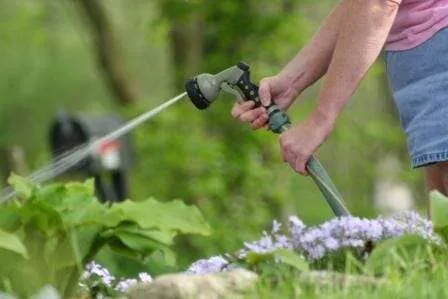Using water efficiently in your garden doesn’t just save money on bills—it promotes healthier plants and contributes to environmental sustainability. By understanding your garden’s needs and adopting smart practices, you can reduce water waste and create a thriving outdoor space.
Understanding Water Requirements in Your Garden
Every garden is unique, and understanding your plants’ water needs is the foundation of efficiency. Factors such as plant type, soil quality, and weather patterns all influence how much water your garden requires.
For instance, native plants typically adapt well to local conditions and need less water than exotic species. Soil type also plays a critical role—sandy soils drain water quickly, while clay soils retain moisture but can become waterlogged. Improving your soil with organic matter, such as compost, helps balance these extremes by enhancing water retention and drainage.
Implementing Efficient Watering Practices
How you water your garden is just as important as how much water you use. Strategic watering practices can significantly reduce waste while keeping your plants healthy.
Using techniques like drip irrigation ensures water is delivered directly to the root zone, minimising evaporation and runoff. Garden irrigation system installers like TCR Watering can help set up these systems for maximum efficiency. Watering early in the morning or late in the evening also reduces evaporation and ensures plants absorb the moisture they need.
Grouping plants with similar water needs can make irrigation more efficient. This method, known as hydrozoning, allows you to tailor watering schedules to specific areas of your garden, ensuring each plant receives the right amount of water.
Harnessing Rainwater and Using Mulch
Rainwater is a free, sustainable resource that can supplement your garden’s water needs. Installing water butts to collect rainwater from roofs reduces reliance on mains water and is better for the environment. Rainwater is also free of chemicals like chlorine, which can benefit plant health.
Mulching is another effective way to retain soil moisture and improve water efficiency. Organic mulches, such as wood chips, bark, or compost, not only reduce evaporation but also regulate soil temperature and suppress weeds. A thick layer of mulch (5–8 cm) around the base of plants helps to lock in moisture and reduces the frequency of watering.
Designing a Water-Wise Garden
Creating a water-efficient garden starts with thoughtful design. Incorporating features such as raised beds, permeable pathways, and drought-resistant plants can help reduce water consumption without compromising beauty.
Drought-tolerant plants, such as lavender, sedum, and ornamental grasses, thrive in dry conditions and require minimal watering. Combining these with water-efficient irrigation systems ensures your garden remains lush and healthy year-round, even during dry spells.
By rethinking how you approach watering and garden design, you can lower your water bills, support plant health, and make a positive impact on the environment. Simple changes can yield long-lasting benefits for your garden and your wallet.


